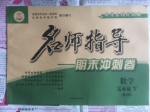题目内容
If you have ever been in a school play or even made believe you were a doctor, detective, or a space traveler, you know the enjoyment that acting brings. Almost all of us have the wish to play the part of someone—or something—else. 71
In the ancient world, acting was often associated with religious ceremonies and other special occasions. As far back as 2200 B.C. trained Chinese actors performed ceremonial dances in costume and makeup at harvest festivals. 72 To the dance was gradually added pantomime—the imitation of movements and gestures—as well as the wearing of masks, the singing of chants, and finally the use of dialogue.
While acting was coming into its own in the ancient Chinese classical theatre, it was doing the same in the western world, in Greece. From about 500 B.C. on, acting became a highly specialized art in Greece. Greek actors, however, still wore masks, and their motions were largely fixed by custom. 73
Modern acting, by contrast, gives the individual actor great opportunity to develop his or her personal talents for serious, comic, or musical drama. The names, faces, and styles of famous movie actors are known worldwide. 74 A special form of acting takes place in radio drama, which was highly popular before television. In radio drama the actors face an unique challenge. They are unseen by their audience. So they must rely on voice alone to make their characters real to the listeners.
75 Only forty percent of Broadway actors are employed, most of them for only part of the year. Those who become stars need not only talent, but determination. They must not be easily discouraged. Otherwise, they might give up before the opportunity for stardom presents itself.
A. The origins of acting are in the act of remembering.
B. Drama in Greece began with festivals honoring Dionysus.
C. It is believed that this was the first step in the development of acting.
D. Historical records indicate that this desire is as old as civilization itself.
E. Acting is not, as many people think, a quick, easy road to fame and riches.
F. Broadway and television provide other stages on which actors can display their talent.
G. Consequently, they had little opportunity to demonstrate their individual personalities.
71. D 72. C 73. G 74. F 75. E

 名师指导期末冲刺卷系列答案
名师指导期末冲刺卷系列答案 开心蛙口算题卡系列答案
开心蛙口算题卡系列答案Different people use different languages. We Chinese speak Chinese, and, most of us are learning a foreign language. But there is another kind of language we need to know --- the language of the body.
All over the world, people “talk with their hand, with their heads and with their eyes.” When Japanese people meet, they bow. When Indians meet, they put their hands together. What do American and British do? Americans are more imformal(不拘小节的) than the British. They like to be friendly. They use first names, they ask questions and they talk easily about themselves. When they sit down, they like to relax in their chairs and make themselves comfortable. British people are more reserved(保守的). They take more time to make friends. They like to know you before they ask your name.
When British or American people meet someone for the first time, they shake hands. They do not usually shake hands with people they know well. Women sometimes kiss their women friends, and men kiss women friends (on one cheek only). When a man meets a man, he just smiles, and says, “Hello.” Men do not kiss each other, or hold hands. Even fathers and sons do not often kiss each other.
【小题1】In the passsage, the writer thinks that body language is ______________.
| A.uselss | B.difficult | C.quite easy | D.important |
| A.different countries hav the same body language. |
| B.different countries have different body anguages. |
| C.people in Asia share the same body language. |
| D.many people only use their body language. |
| A.sit straight | B.never sits down | C.makes fun of you | D.sits freely |
| A.imopssible | B.too easy | C.too difficult | D.slow |
| A.men | B.women | C.British | D.Americans |